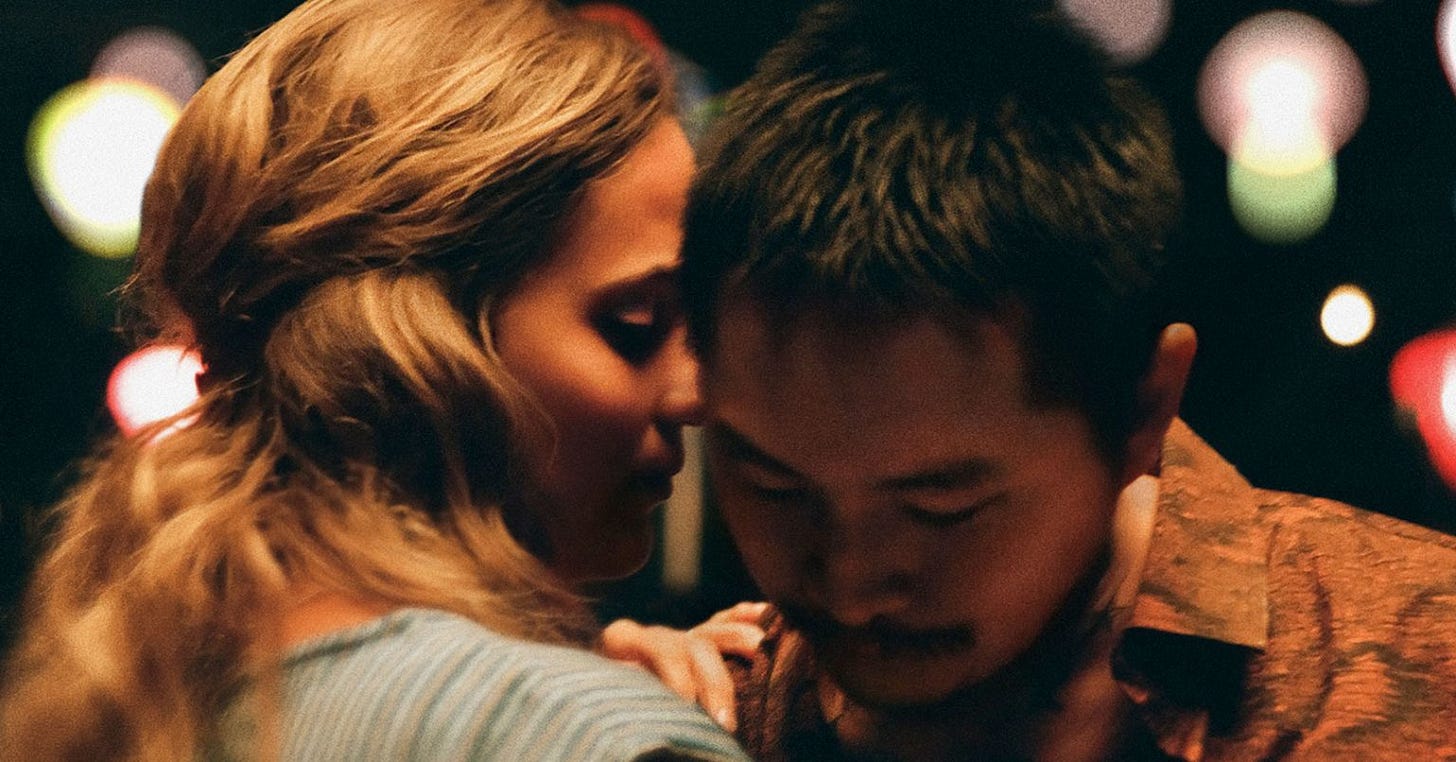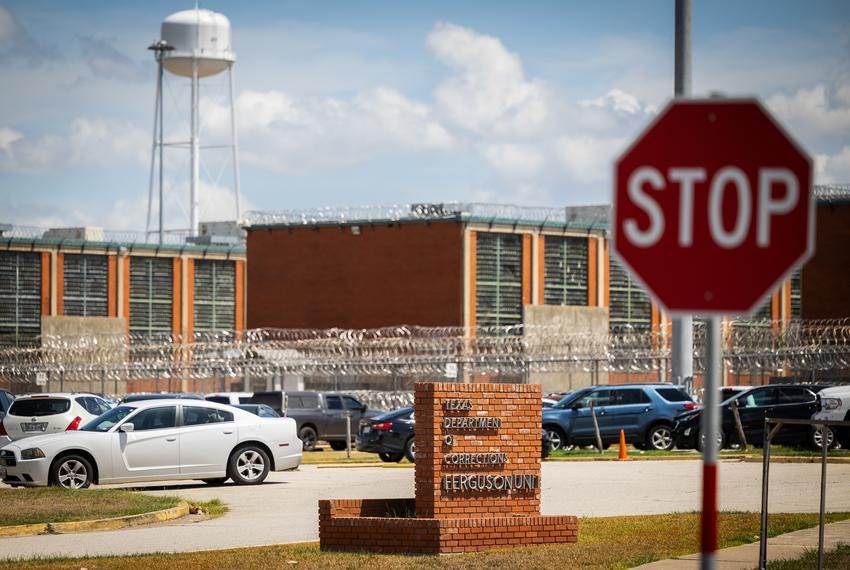The Louisiana Bayou, Korean-Adoptees, and Not Knowing if I Could Go Back Home.
How to not have to justify your existence
My intention was to write about the latest Superman movie and highlight the silliness of calling it “woke,” especially since Superman is depicted as an immigrant from the planet Krypton. I was also planning to write about the history of the word woke, but I’ll save that for another day—because another film, perhaps even more relevant to the fragility of some people, captured my attention.
This article, instead, is about the real-life immigration experiences of Asian Americans and why many have voted against their best interests.
The film Blue Bayou is set in Louisiana and follows the story of a Korean American adoptee who faces deportation by ICE (U.S. Immigration and Customs Enforcement). Even though he has been in the U.S. for 30 years, is married to a U.S. citizen, and is expecting a baby girl with her, he is still in danger of being sent to a land he knows nothing about. The movie was extremely difficult for me to watch. If I were dropped into Vietnam in my 30s, I wouldn’t even know where to begin. Now, in my 50s, it’s a bit easier to figure out—but it would still not be a homecoming. It is a foreign, albeit beautiful, land.
The film begins with Antonio LeBlanc being asked how he got that name. He’s with his white daughter. He must explain. Justifying his name, his fatherhood, and even his existence becomes a constant theme. But that’s what many people of color must do in this land. We have to defend who we are on a daily basis. At the core this is what most Asian Americans are forced to do on almost a daily basis we are continually forced to prove we belong, even in a country we’ve called home for decades.
This film is not without controversy. Several members of the Korean adoptee community have called for a boycott, claiming that director Justin Chon—who also stars in the lead role—appropriated adoptee stories. Chon responded, saying he worked with 13 adoptees to tell a story about trauma, not the story of one specific person. Understandably, certain adoptees saw their own story in the film. There are many similar stories out there—just as my own story of immigration and survival in the States mirrors those of many people I know.
In the late 1990s, I visited a correctional facility in Midway, Texas about once a month to minister to a group of Asian American inmates at a medium-security prison. Many of the men I visited had committed gang-related crimes. One man had killed his wife’s lover in a fit of rage and was incarcerated for homicide. Many had committed violent crimes—but were not, themselves, violent people.
One day, I asked one of the inmates to cut my hair. He used scissors for the cut and a straight razor for the shave. I was perfectly fine letting him shave me, even though I didn’t know what crime had brought him there. During one of my visits, a prisoner told me that because he had a felony charge, ICE was going to pick him up right after he was released.
Brian was the son of a U.S. soldier stationed in Vietnam during the war. He and his mother fled to the U.S. afterward, as many children born to U.S. servicemen were not treated the same as other Vietnamese nationals. He was only a few years younger than me and knew nothing about where he was born. He could not speak the language, but would be deported and dropped into a world entirely foreign to him. I even visited an immigration lawyer to see if there were any options. At the time, there was nothing they could do. Several other men were facing the same situation.
During the first Trump administration, Vietnamese nationals were twice targeted for deportation. Yet many Vietnamese Americans—and Asian Americans more broadly—voted for that administration then, and again now.
Strangers in the Land by Michael Luo recounts how Chinese immigrants were brought into this country to build its infrastructure but were later excluded from citizenship. Despite this history, the anti-communist rhetoric of recent administrations, and the fearmongering that the U.S. might become a socialist state due to calls for universal healthcare, led many Asians from communist countries to vote for Trump. Asian Americans have also been manipulated by rhetoric around “family values,” low taxation, and “freedom of religion,” as if those values belong to only one political party.
Photos from the January 6 insurrection show several pre-fall Vietnamese flags being flown. This reflects the enduring propaganda that progressive policies somehow threaten individual rights.
But now Trump has issued an executive order aimed at preventing people whose parents were unlawfully or temporarily in the U.S. at the time of their birth from accessing the benefits of citizenship.¹ This is a direct challenge to the 14th Amendment, which guarantees birthright citizenship to all people born in the U.S.—with the added condition that they are “subject to the jurisdiction” of the United States. While the Supreme Court has not yet ruled definitively on the legality of this order, its intent is clear: to exclude the children of undocumented immigrants and refugees. This challenge to the Constitution is part of a broader effort to deport as many non-white people as possible.

Just recently, in May, Vietnamese and Burmese migrants were sent to South Sudan to be processed and deported to their respective countries.² Imagine traveling thousands of miles to the U.S. in search of a better life, only to be detained in East-Central Africa while awaiting deportation. Yes, other administrations have also engaged in mass deportations—but not with the same extent, violence, or zeal. Just because your neighbor yells at their children doesn’t give you the right to abuse yours. These policies are not slowing down.
Paula and I took a quick four-day, three-night trip to Cancún to get away from work. We were reminded again how hospitable and beautiful the people of Mexico are. The stay at the resort was exactly what we needed—to decompress, regroup, and create. But throughout the trip, I had daily concerns. What if we were stopped by Customs and Border Protection? I have my passport. I have my Global Entry Card. I have a copy of my citizenship papers on my phone. But still—what if?
There is a constant fear now, more than ever, that I could be sent back. Daily, I meditate, pray, do breathwork, and visualize peace—but there’s a kind of detainment none of that prepares you for. We had our photos taken at Global Entry and passed through Customs with only a quick reminder from the officer to remove our glasses next time.
Being back on U.S. soil stirred mixed feelings. I was glad to be home. Glad to see my parents. Relieved to know our cat and dog were cared for. But most of all, I was thankful to return to my community—the people who make me feel most human.
BTW: I’m writing this after watching the new Superman movie. No spoilers here—but it shows a Superman who loves both non-human and human animals, who wants good for humanity, and who fights evil.
Yes, super woke. But that is for another article…
Notes
“Where does birthright citizenship order currently stand?” SCOTUSblog, July 2025. https://www.scotusblog.com/2025/07/where-does-birthright-citizenship-order-currently-stand/
“Trump administration deported migrants to South Sudan to await removal.” The Guardian, May 20, 2025. https://www.theguardian.com/us-news/2025/may/20/trump-administration-deported-migrants-south-sudan
Thanks for being a paid member to my substack page. Blessings!







Thank you for the film recommendation. Breathing with you and so many who now live with uncertainty. It’s hateful and so unnecessary.
Also, Ed and I will be talking Superman on Wednesday at 1 central!
Thank you for sharing your story. But when you write "the 14th Amendment, which guarantees that all people born in the U.S.—no matter the circumstances—are U.S. citizens," you are not being accurate. The amendment's authors added a qualifier; an AND statement which requires two conditions both be true for birthright citizenship to apply. This is the legal basis for the challenge.
I don't like this any more than you, but it's still important to see and try to understand the viewpoint of people we disagree with. Otherwise we are diminishing their humanity.